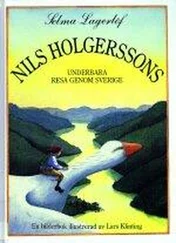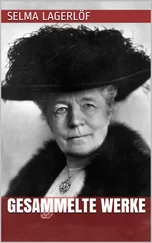Selma Lagerlöf - From a Swedish Homestead
Здесь есть возможность читать онлайн «Selma Lagerlöf - From a Swedish Homestead» — ознакомительный отрывок электронной книги совершенно бесплатно, а после прочтения отрывка купить полную версию. В некоторых случаях можно слушать аудио, скачать через торрент в формате fb2 и присутствует краткое содержание. Жанр: foreign_antique, foreign_prose, на английском языке. Описание произведения, (предисловие) а так же отзывы посетителей доступны на портале библиотеки ЛибКат.
- Название:From a Swedish Homestead
- Автор:
- Жанр:
- Год:неизвестен
- ISBN:нет данных
- Рейтинг книги:5 / 5. Голосов: 1
-
Избранное:Добавить в избранное
- Отзывы:
-
Ваша оценка:
- 100
- 1
- 2
- 3
- 4
- 5
From a Swedish Homestead: краткое содержание, описание и аннотация
Предлагаем к чтению аннотацию, описание, краткое содержание или предисловие (зависит от того, что написал сам автор книги «From a Swedish Homestead»). Если вы не нашли необходимую информацию о книге — напишите в комментариях, мы постараемся отыскать её.
From a Swedish Homestead — читать онлайн ознакомительный отрывок
Ниже представлен текст книги, разбитый по страницам. Система сохранения места последней прочитанной страницы, позволяет с удобством читать онлайн бесплатно книгу «From a Swedish Homestead», без необходимости каждый раз заново искать на чём Вы остановились. Поставьте закладку, и сможете в любой момент перейти на страницу, на которой закончили чтение.
Интервал:
Закладка:
Selma Lagerlöf
From a Swedish Homestead
From a Swedish
Homestead
I
The Story of a Country House
I
It was a beautiful autumn day towards the end of the thirties. There was in Upsala at that time a high, yellow, two-storied house, which stood quite alone in a little meadow on the outskirts of the town. It was a rather desolate and dismal-looking house, but was rendered less so by the Virginia-creepers which grew there in profusion, and which had crept so high up the yellow wall on the sunny side of the house that they completely surrounded the three windows on the upper story.
At one of these windows a student was sitting, drinking his morning coffee. He was a tall, handsome fellow, of distinguished appearance. His hair was brushed back from his forehead; it curled prettily, and a lock was continually falling into his eyes. He wore a loose, comfortable suit, but looked rather smart all the same.
His room was well furnished. There was a good sofa and comfortable chairs, a large writing-table, a capital bookcase, but hardly any books.
Before he had finished his coffee another student entered the room. The new-comer was a totally different-looking man. He was a short, broad-shouldered fellow, squarely built and strong, ugly, with a large head, thin hair, and coarse complexion.
'Hede,' he said, 'I have come to have a serious talk with you.'
'Has anything unpleasant happened to you?'
'Oh no, not to me,' the other answered; 'it is really you it concerns.' He sat silent for a while, and looked down. 'It is so awfully unpleasant having to tell you.'
'Leave it alone, then,' suggested Hede.
He felt inclined to laugh at his friend's solemnity.
'I can't leave it alone any longer,' said his visitor. 'I ought to have spoken to you long ago, but it is hardly my place. You understand? I can't help thinking you will say to yourself: "There's Gustaf Alin, son of one of our cottagers, thinks himself such a great man now that he can order me about."'
'My dear fellow,' Hede said, 'don't imagine I think anything of the kind. My father's father was a peasant's son.'
'Yes, but no one thinks of that now,' Alin answered. He sat there, looking awkward and stupid, resuming every moment more and more of his peasant manners, as if that could help him out of his difficulty. 'When I think of the difference there is between your family and mine, I feel as if I ought to keep quiet; but when I remember that it was your father who, by his help in days gone by, enabled me to study, then I feel that I must speak.'
Hede looked at him with a pleasant smile.
'You had better speak out and have done with it,' he said.
'The thing is,' Alin said, 'I have heard people say that you don't do any work. They say you have hardly opened a book during the four terms you have been at the University. They say you don't do anything but play on the violin the whole day; and that I can quite believe, for you never wanted to do anything else when you were at school in Falu, although there you were obliged to work.'
Hede straightened himself a little in his chair. Alin grew more and more uncomfortable, but he continued with stubborn resolution:
'I suppose you think that anyone owning an estate like Munkhyttan ought to be able to do as he likes – work if he likes, or leave it alone. If he takes his exam., good; if he does not take his exam., what does it matter? for in any case you will never be anything but a landed proprietor and iron-master. You will live at Munkhyttan all your life. I understand quite well that is what you must think.'
Hede was silent, and Alin seemed to see him surrounded by the same wall of distinction which in Alin's eyes had always surrounded his father, the Squire, and his mother.
'But, you see, Munkhyttan is no longer what it used to be when there was iron in the mine,' he continued cautiously. 'The Squire knew that very well, and that was why it was arranged before his death that you should study. Your poor mother knows it, too, and the whole parish knows it. The only one who does not know anything is you, Hede.'
'Don't you think I know,' Hede said a little irritably, 'that the iron-mine cannot be worked any longer?'
'Oh yes,' Alin said, 'I dare say you know that much, but you don't know that it is all up with the property. Think the matter over, and you will understand that one cannot live from farming alone at Vesterdalarne. I cannot understand why your mother has kept it a secret from you. But, of course, she has the sole control of the estate, so she need not ask your advice about anything. Everybody at home knows that she is hard up. They say she drives about borrowing money. I suppose she did not want to disturb you with her troubles, but thought that she could keep matters going until you had taken your degree. She will not sell the estate before you have finished, and made yourself a new home.'
Hede rose, and walked once or twice up and down the floor. Then he stopped opposite Alin.
'But what on earth are you driving at, Alin? Do you want to make me believe that we are not rich?'
'I know quite well that, until lately, you have been considered rich people at home,' Alin said. 'But you can understand that things must come to an end when it is a case of always spending and never earning anything. It was a different thing when you had the mine.'
Hede sat down again.
'My mother would surely have told me if there were anything the matter,' he said. 'I am grateful to you, Alin; but you have allowed yourself to be frightened by some silly stories.'
'I thought that you did not know anything,' Alin continued obstinately. 'At Munkhyttan your mother saves and works in order to get the money to keep you at Upsala, and to make it cheerful and pleasant for you when you are at home in the vacations. And in the meantime you are here doing nothing, because you don't know there is trouble coming. I could not stand any longer seeing you deceiving each other. Her ladyship thought you were studying, and you thought she was rich. I could not let you destroy your prospects without saying anything.'
Hede sat quietly for a moment, and meditated. Then he rose and gave Alin his hand with rather a sad smile.
'You understand that I feel you are speaking the truth, even if I will not believe you? Thanks.'
Alin joyfully shook his hand.
'You must know, Hede, that if you will only work no harm is done. With your brains, you can take your degree in three or four years.'
Hede straightened himself.
'Do not be uneasy, Alin,' he said; 'I am going to work hard now.'
Alin rose and went towards the door, but hesitated. Before he reached it he turned round.
'There was something else I wanted,' he said. He again became embarrassed. 'I want you to lend me your violin until you have commenced reading in earnest.'
'Lend you my violin?'
'Yes; pack it up in a silk handkerchief, and put it in the case, and let me take it with me, or otherwise you will read to no purpose. You will begin to play as soon as I am out of the room. You are so accustomed to it now you cannot resist if you have it here. One cannot get over that kind of thing unless someone helps one; it gets the mastery over one.'
Hede appeared unwilling.
'This is madness, you know,' he said.
'No, Hede, it is not. You know you have inherited it from the Squire. It runs in your blood. Ever since you have been your own master here in Upsala you have done nothing else but play. You live here in the outskirts of the town simply not to disturb anyone by your playing. You cannot help yourself in this matter. Let me have the violin.'
'Well,' said Hede, 'before I could not help playing, but now Munkhyttan is at stake; I am more fond of my home than of my violin.'
Читать дальшеИнтервал:
Закладка:
Похожие книги на «From a Swedish Homestead»
Представляем Вашему вниманию похожие книги на «From a Swedish Homestead» списком для выбора. Мы отобрали схожую по названию и смыслу литературу в надежде предоставить читателям больше вариантов отыскать новые, интересные, ещё непрочитанные произведения.
Обсуждение, отзывы о книге «From a Swedish Homestead» и просто собственные мнения читателей. Оставьте ваши комментарии, напишите, что Вы думаете о произведении, его смысле или главных героях. Укажите что конкретно понравилось, а что нет, и почему Вы так считаете.












